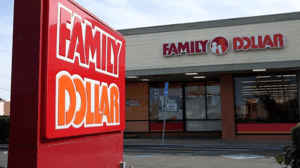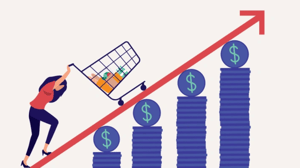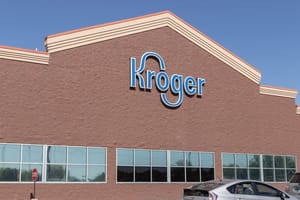How 10 Grocers Are Reducing Plastics
Greenpeace USA ranks U.S. retailers based on their efforts to tackle the pollution crisis. Greenpeace USA ranks U.S. retailers based on their efforts to tackle the pollution crisis.
March 21, 2022

Greenpeace USA, a nonprofit that aims to increase public awareness and understanding of environmental issues, has ranked major U.S. grocery retailers based on their efforts to reduce their reliance on plastics and tackle the pollution crisis. Here are the top 10 grocers of the organization’s 2021 Supermarket Plastics Ranking.
1.Giant Eagle
Giant Eagle has committed to eliminating all single-use plastics by 2025. While the pandemic put consumer-facing efforts on pause, the company is partnering with indoor farmer Fifth Season to reduce plastic packaging on leafy greens, lettuces and salad blends by 40% per package. Giant Eagle has also switched to biodegradable compressed recycled paper for the outer packaging of its Great to Go meal kits and is working to introduce sustainable packaging for Giant’s own-brand products.
2. Aldi
Aldi almost exclusively sells private label products, which allows the company to control product packaging decisions. The retailer announced a goal in 2019 of switching to 100% reusable, recyclable and compostable packaging, and to reducing product packaging by 15% on all Aldi-exclusive products by 2025.
3. Sprouts Farmers Market
Sprouts strives to include at least 30% recycled content in its packaging and is creating internal sustainable packaging guidelines, engaging suppliers and developing packaging reduction targets. Sprouts stores also have reuse and refill options and a large bulk section.
4. The Kroger Co.
Kroger has a goal of switching to 100% recyclable, compostable and/or reusable own-brand packaging by 2030 and has promised to eliminate single-use plastic checkout bags by 2025. Further, the retailer plans to increase recycled content to at least 10% in its own-brand packaging. Kroger has reduced more than 10 million pounds of plastics through lightweighting, packaging redesign and increased recycled content.
5. Albertsons Cos.
Albertsons publicly committed to making its own-brand packaging 100% recyclable, reusable or industrially compostable by 2025, and will include 20% recycled content in plastic packaging for its own-brand products. The retailer also plans to decrease the use of single-use plastics.
6. Costco
Costco has a 10-year initiative to reduce polystyrene and is transitioning all its food court packaging to compostable alternatives. Produce buying teams are also working with suppliers to reduce plastic packaging, with some apple brands transitioning to corrugated packaging.
7. Walmart
Walmart has a public goal of 100% recyclable, reusable or industrially compostable own-brand packaging by 2025 and has committed to achieving 15% absolute reduction in virgin plastic use compared to its 2020 baseline.
8. Ahold Delhaize
As a New Plastics Economy Global Commitment signee, Ahold Delhaize has committed to using 100% reusable, recyclable or compostable own-brand plastic packaging by 2025, as well as using 25% post-consumer recycled content in own-brand plastic packaging.
9. Wegmans
The company is focused on using less plastic, using renewable and recycled content, and increasing recyclability. Produce and bulk food bags are made from 100% plant-based renewable materials, which can be recycled in the stores’ plastic recycling receptacles.
10. Whole Foods Market
Whole Foods was among the first national grocery retailers to ban single-use plastic checkout bags and plastic straws. It also banned microbeads before a national law took effect.
Click here to return to the 2022 Sustainable Packaging Report
About the Author
You May Also Like




